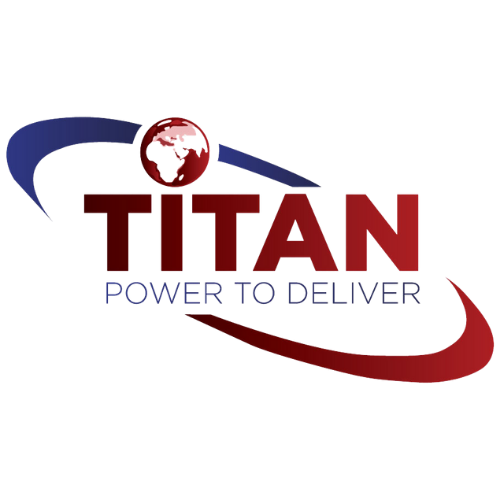Entering markets in new countries can be a daunting task for many businesses. However, market access and sustainable growth can be achieved if you have a strong network of local partners who provide valuable guidance and feedback.
These partners span across several disciplines and areas of expertise and should complement similar resources back home. They can provide insights and direction specific to a new market expansion you are considering based on local knowledge and experience. The partners who can truly add value to your expansion plans should fall into at least one – and hopefully all three – of the following types.
1) Door OpenersStrategic introductions to prospective customers, influencers and government departments play important roles in establishing a presence in a new market. Your local partners should already have the relationships that will open doors for you in your new target markets. Leverage their experience and local access to get the early meetings required to build local awareness of your company. In a business world that has grown weary of cold calls and blind emails, existing relationships from your network of local partners will open doors that would be inaccessible otherwise. |

|
- Channel Partners - Distributors, VARs and independent reps are already servicing customers who can be your early wins in a new region. While recruiting and establishing a direct sales team may be a long-term goal, it often takes time to break into target customers in a new country or region with a new sales team. Margin that is sacrificed by going through channel partners is made up for with the ready access to strategic accounts they can provide, helping you establish market traction.
- Economic Development Organisations - Economic Development Organisations (EDOs) who promote trade expansion for businesses from their country/region can often make important connections in new countries. Likewise, local EDOs supporting the region where you establish an office/facility will look to offer whatever they can to make their region attractive for your investment. Oftentimes, they can make introductions to prospective customers and partners that will facilitate an efficient launch of your new venture.
- Country-specific Groups – There often exists ecosystems consisting of businesses, ex-pats and cultural societies associated with your country in many locations you are considering. Most regions have business associations, chambers of commerce and organizations with country affiliations. They can often provide valuable guidance, but their members should also be a source of opportunities as well. Research associations with a specific focus on those who actively support networking and facilitate business connections between their members. Actively seek out opportunities to leverage any affiliation to your country you can in new markets.
In a business world that has grown weary of cold calls and blind emails, existing relationships from your network of local partners will open doors that would be inaccessible otherwise.

|
2) Trail GuidesEach country, and often each state/local region within a country, has its unique set of realities. Let us look at taxation as an example. In the USA, sales and income tax, as two examples, vary from state to state. Foreign businesses are often blind to this reality when entering the USA and shocked to find 51 (50 states + federal government) different sets of tax rates and regulations that continually change. In the EU, USA companies are often perplexed by the concept of VAT (Value Added Tax), let alone the process for accurately charging and claiming back VAT, with rates differing across multiple countries in this “single market economy”. |
Too often, companies find themselves unaware of a tax liability, exposed to legal filings or under-insured until long after they could have done something to avoid these challenges. Guidance from subject matter experts in these new jurisdictions can save businesses a lot of downstream headaches (and hard costs) if properly leveraged. These valuable trail guides help businesses navigate paths toward launching their ventures while avoiding unnecessary pitfalls.
- Insurance Experts – Does your existing policy have the appropriate global riders to provide adequate coverage in a new country? Does your existing insurance broker have a deep understanding of all the insurance liability concerns you need covered in the new country? Find a local insurance expert to advise you on your new realities and make sure you are properly covered.
- Logistics Companies - Do you have products that need to ship to customers and/or distributors in your new market? If so, an experienced logistics partner will help you navigate challenges that can arise with customs, order fulfillment and an evolving supply chain landscape. The ability to efficiently deliver products, while having real-time access to your entire supply chain information, is an important step toward developing credibility in a new market. Make sure your logistics partner has scalable resources to support the growth that will come from being able to provide best-in-class service to customers in your new market.
- Accountants - Are you aware of all the tax and compliance regulations required in your new market? A local accountant can, aside from tax guidance mentioned above, also make sure annual mandatory filings, many of which can be minor but costly if overlooked, are done on time. Your accounting firm and/or department back home is not likely to know about all the specific requirements in the new country. Make sure you have local guidance to avoid unnecessary penalties for minor oversights.
- Attorneys - Have you ever tried to use existing distributor or partner contract templates in a new country? Legal documents which you have been using with domestic partners for years can often lack required language and have terms that are unenforceable in a new country. Employment contracts are another example of differences existing between countries. Many European companies offer standard employment contracts unnecessarily in “at-will employment” states in the USA. A local attorney can make sure that you only enter into agreements that are required and, when you do, you are properly covering your legal risks.
3) Time SaversLaunching any new venture, even in familiar territory, takes patience and perseverance. The enthusiasm that accompanies the launch of a new venture can often be dampened when unforeseen delays from regulations and guidelines in unfamiliar jurisdictions arise. This reality exists within a business’ own country and can be exponentially more challenging in new countries. Differences in culture and business practices can also compound the time delays associated with a launch in a new country. Make sure the partners you select can help you reduce time spent on tasks that take you away from core business development plans. |

|
- Recruitment Agencies - Sifting through resumes in familiar settings is often an inefficient use of a manager’s time and can be exasperated when accounting for differences in education levels, terminology, and expectations in a new country. Additionally, most new business launches do not have the luxury of a human resources department well versed in the local realities of a new country. A local professional recruiting firm, preferably with experience supporting international employers, will save time while helping build your local team.
- Immigration Attorneys - Navigating immigration law, even before a global pandemic complicated access for everybody, is not something that should be handled by amateurs. Too often, businesses assume what has worked in the past will continue to in the future. This approach often finds companies with team members sitting in an airport, unable to enter the country, adding delays to launches and project support. An immigration attorney will ensure your employees from home are not facing unnecessary delays when entering a new country.
- Banks – Opening up a bank account as a foreign entity can take several weeks to sometimes months depending on several factors. A local accounting professional should be able to help determine which local banks have experience with foreign account holders and provide the guidance you need to quickly set up banking facilities in your new country.
| International business expansion can be exhilarating, frustrating, educational and profitable all at the same time. Make sure you spend the time to find partners who can provide the proper guidance to launch efficiently while avoiding traps that can arise in unfamiliar territory. |
Rob is a global business collaboration expert with particular focus on emerging solutions and best practices across North American to European trade, logistics, supply chain and inter-governmental relations.
He specialises in helping businesses connect with partners and infrastructure for efficient global expansion.
Topics from this blog: News

